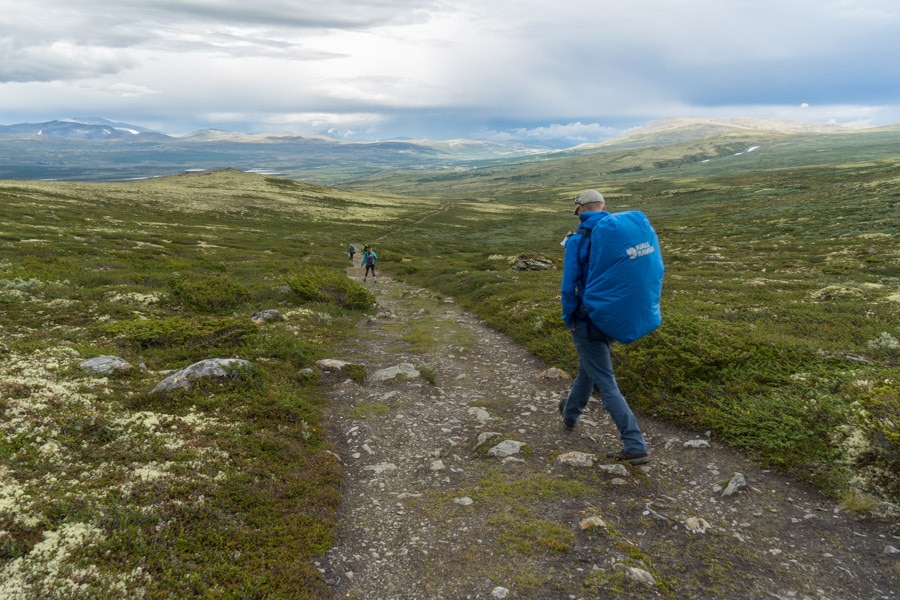
Everything You Need to Know About Walking Saint Olav's Way in Norway
St Olav's Way, Norway. Oslo Norway Trondheim Norway 643km Honouring Norway's King Olav II Haraldsson, St Olav's Way is a network of seven pilgrim paths leading through Norway, Sweden and Denmark to Nidaros Cathedral in Trondheim. Here you will find Saint Olav's shrine, an important pilgrimage site for Scandinavian pilgrims since the.

Walkopedia the world's best walks, treks and hikes St Olav's Way,Norway
The St. Olav's Way, also known as St. Olavspaden in Norwegian, is a network of pilgrim routes in Norway that lead to the Nidaros Cathedral in Trondheim, which is the final resting place of St. Olav, the patron saint of Norway.The length of the St. Olav's Way can vary depending on the specific route taken, as there are several different paths leading to Trondheim from different starting points.

Everything You Need to Know About Walking Saint Olav's Way in Norway
There are several major pilgrimage routes in the world, among which several are in Europe, such as the St. Olav's Way in Norway. Origin of the St. Olavs Way. The pilgrimages to Nidaros Cathedral in Trondheim, and thus the origin of the St. Olav Way, began in 1030 after the death of St. Olav in Stiklestad. In this cathedral is the tomb of St.
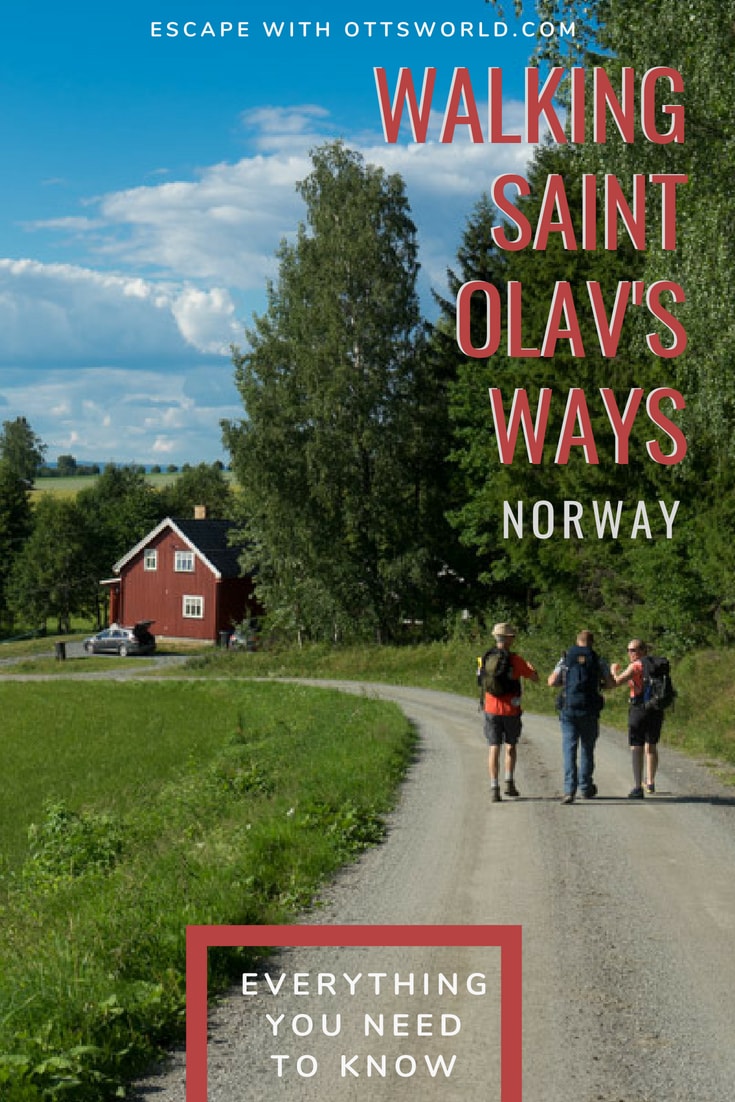
Saint Olav's Way Everything You Need to Know For Waling the Pilgrimage
St Olav is a Viking king who united Norway and introduced Christianity to Scandinavia. There have been many miracles attributed to St. Olaf Haraldsson (995-1030), so since medieval times, people have walked to Trondheim Cathedral to repent for sins, pray for healing and/or ask for blessings.

St Olav Ways in Norway Adventure travel, Travel activities, Adventure travel packing
Nordleden. Gløshaugen - Stiklestad. Gløshaug Church in Grong marks the start for this pilgrim path. On its way south it passes many sites and places with strong links to St. Olav's heritage, with Megard Church being one of the most prominent.

St. Olav's Ways Hiking Norway's Pilgrim Trails Hiking norway, Norway, Pilgrim
The St. Olav Ways - the pilgrim paths to Trondheim - consist of nine pilgrim routes, all leading to the Nidaros Cathedral in Trondheim. The routes make up a total of around 3,000 kilometres of tranquil scenery through picturesque villages with a strong cultural heritage. Read more about the pilgrim paths to Trondheim. Plan your pilgrimage

Everything You Need to Know About Walking Saint Olav's Way in Norway
Details Hiking The Pilgrims' Way through Gudbrandsdalen offers a varied cultural landscape rich in adventures and history. With Lillehammer as starting point, the route leads through the municipalities of Lillehammer, Øyer, Ringebu, Sør-Fron, Nord-Fron and Sel to Otta, and it then continues across Dovrefjell mountain.
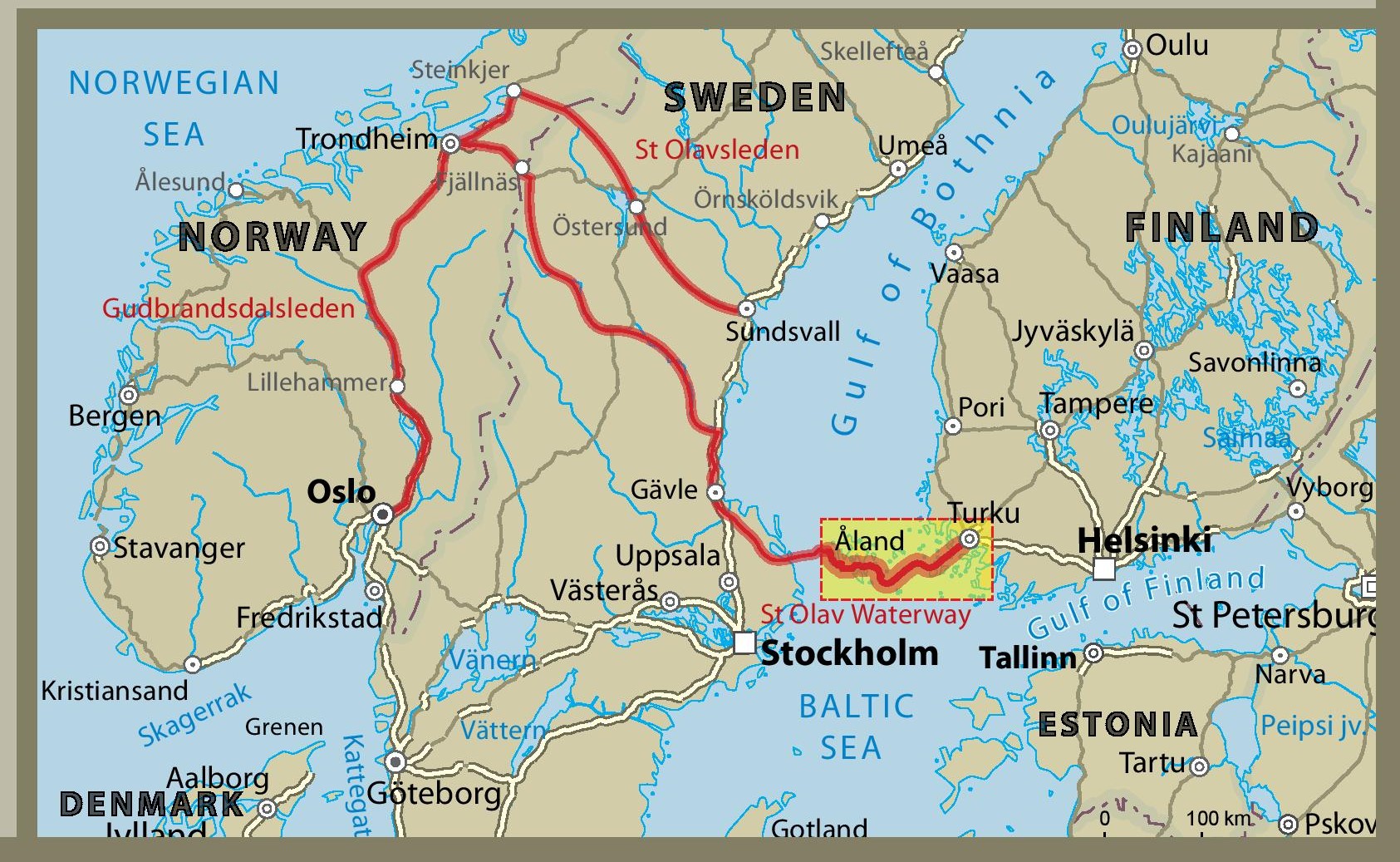
1200km St Olav Waterway
53 km from the border between Sweden and Norway is Stiklestad. Here, the Viking king Olav Haraldsson was killed in a major battle that took place on July 29, 1030. This event would have great significance for the development of the Norwegian nation. Today there is a church on the site where the king died.

St. Olav's Way Oslo Gjøvik/Hamar Trondheim, Norway • Tramposaurus
As Norway's first king, he was exiled to Russia, came back to regain the throne, and lost at the Battle of Stiklestad on July 29th, 1030 — with the date living on as St. Olav's Day. His body was brought 75 miles west to Trondheim where he was buried on the banks of the Nidelva River.
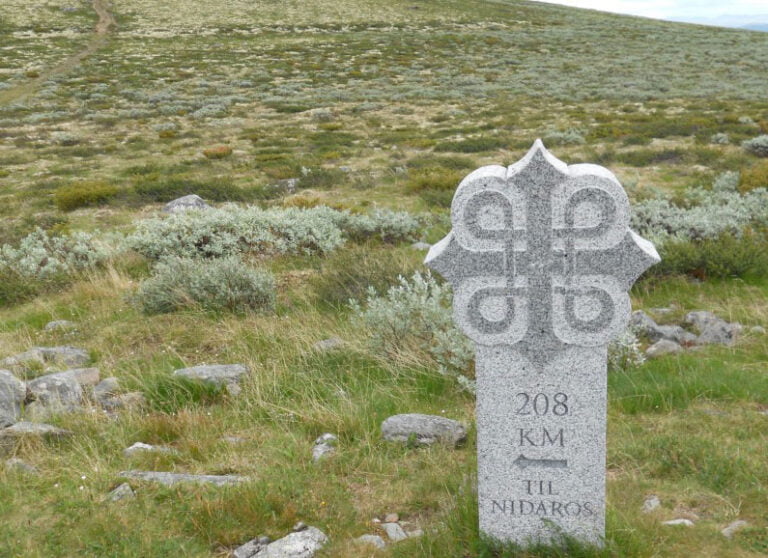
St. Olav's Ways Hiking Norway's Pilgrim Trails Life in Norway
St. Olav's Shrine was the resting place of the earthly remains of St. Olav, Norway's patron saint, behind the high altar of Nidaros Cathedral in Trondheim, Norway, from the mid 11th century. For nearly five centuries the shrine was of major religious value to Norway and the other Nordic countries, and also to other parts of Northern Europe.

Everything You Need to Know About Walking Saint Olav's Way in Norway
What is Saint Olav's Way? 7 Pilegrimsleden Routes to Choose From 1. The Gudbrandsdalen Path 2. Saint Olav's Path 3. The Østerdalen Path 4. The North Path 5. The Rombo Path 6. The Borg Path 7. Valldals Path History of the Saint Olav's Way Hiking Routes The Norwegian spirit How to Plan and Walk Saint Olav's Way How to Train for a Long Thru Hike

St. Olav's Way Oslo Gjøvik/Hamar Trondheim, Norway • Tramposaurus
July 4, 2018 by Lori Osmundsen Home » Norway Travel Tips » Hiking » St. Olav's Ways: Hiking Norway's Pilgrim Trails Hiking the pilgrimage trails of Norway and Scandinavia: Ancient footsteps with a modern twist. The pilgrimage trails collectively known as St. Olav's Ways cross Scandinavia on their way to Trondheim.

Saint Olav's Way Everything You Need to Know For Waling the Pilgrimage
The main goal of this pilgrimage route, is visiting the tomb of the Norwegian King, Olav Haraldsson (also known as Olav II the Saint). We was canonized for establishing Christianity as the official religion in the area. This trail is formed by a network of different routes of more than 5,000 km throughout the Scandinavia.

St. Olav's Way in Norway Hiking the pilgrimage trails of Scandinavia. Ancient footsteps with a
St. Olavsleden is the northernmost pilgrim trail in the world. The trail is approximately 580 kilometers long and extends from the Baltic sea in the East to the Atlantic Ocean in the West, from Selånger in Sweden to Trondheim in Norway. The trail goes through large forests, over mountains, along lakes and past communities and historic sites.
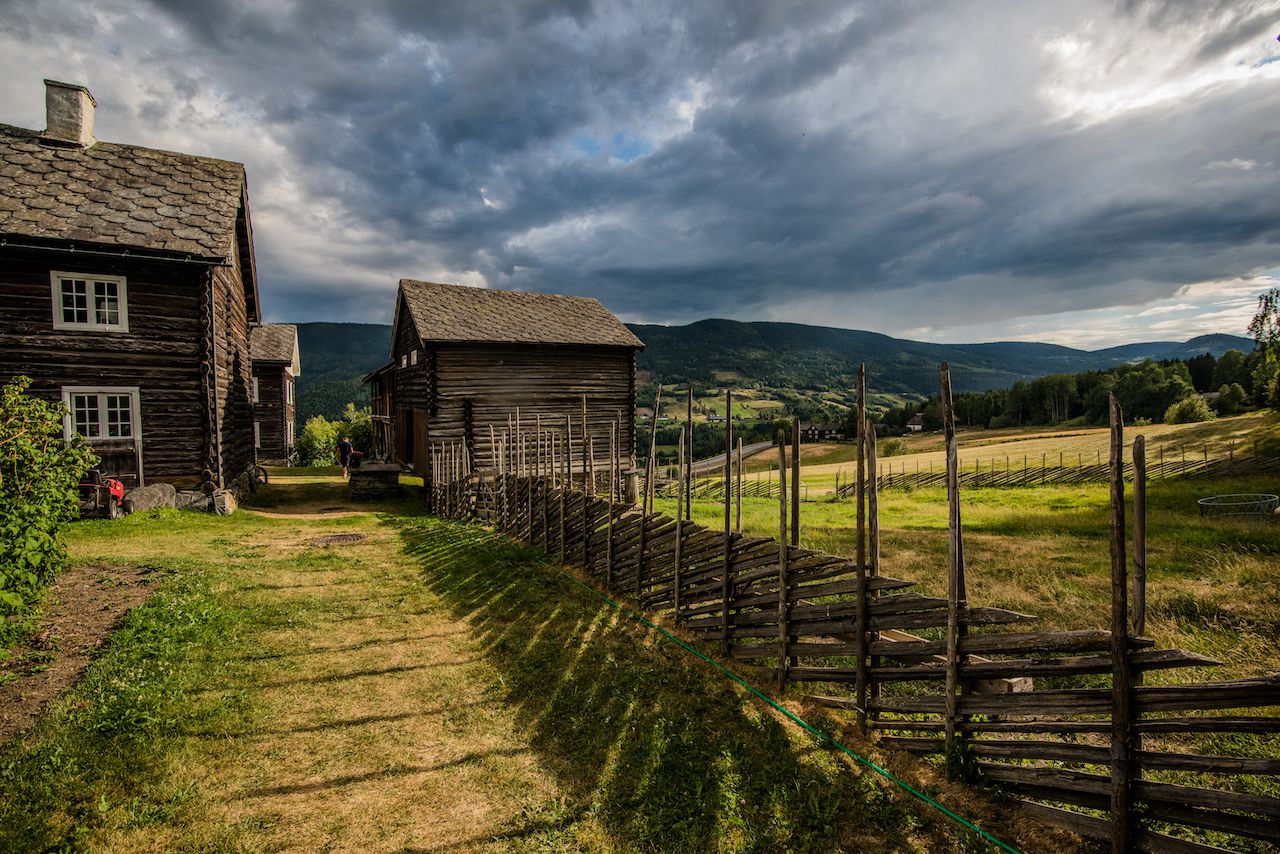
How To Hike the St. Olav Ways
Key information: St Olav's Way A long pilgrimage trail across southern Norway, up the lovely, winding Gudbrandsdal valley, then across the rough, harshly beautiful Dovrefjell to the shrine at Nidaros Cathedral in Trondheim of St. Olav, C11 king of Norway revered as the great Christianiser.

Wanderlust! The St. Olav's Way From Sweden to Norway YouTube
How to train for St Olav's Way in Norway. I have recently completed the St Olav's Way walk from Oslo to Trondheim. This is the latest in a series of long-distance hikes that I have completed. Despite walking regular long distances, I've managed to remain injury free. I credit this to regular and structured training before completing any.